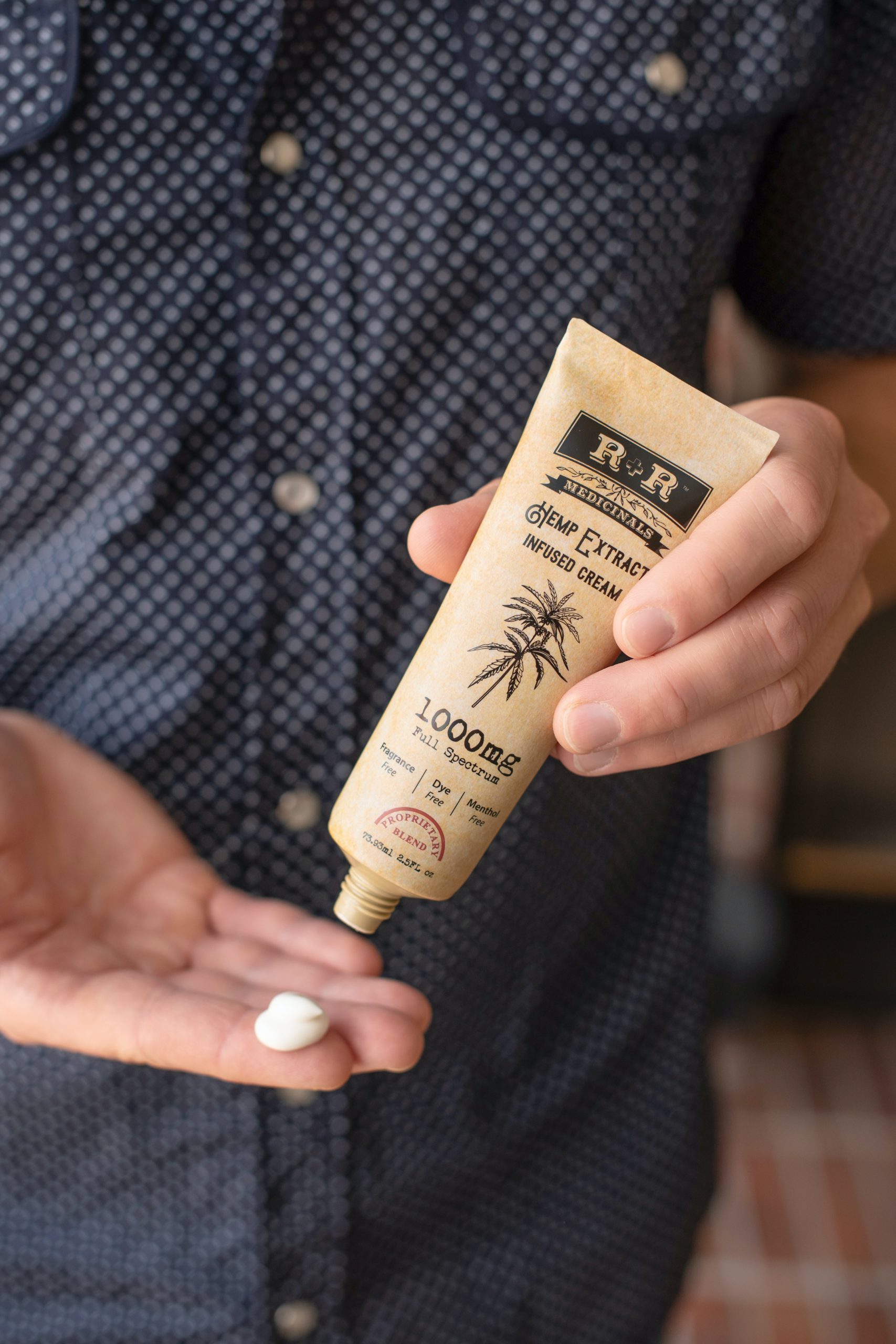Have you ever heard of Palmitoylethanolamide (PEA)? It’s a naturally occurring fatty acid amide that belongs to the family of endocannabinoids and has gained attention for its potential therapeutic properties. PEA is synthesized in various tissues of the body, particularly in response to inflammation and pain, and is believed to play a role in modulating the immune response and promoting homeostasis. Often referred to as a “nutraceutical” or a “dietary supplement,” PEA is not a traditional pharmaceutical drug but rather a compound that may have health benefits, particularly in managing chronic pain and inflammation. But here’s an interesting question: does PEA make you sleepy? Let’s explore this further to find out.
Overview of Palmitoylethanolamide (PEA)
Definition of PEA
Palmitoylethanolamide (PEA) is a naturally occurring fatty acid amide that belongs to the family of endocannabinoids. It was first isolated from soybean lecithin in the 1950s and has since gained attention for its potential therapeutic properties.
Source and synthesis of PEA
PEA is synthesized in various tissues of the body, especially in response to inflammation and pain. It is produced from a precursor molecule called N-palmitoyl-phosphatidylethanolamine (NAPE), which is then converted to PEA by the action of an enzyme called N-acyltransferase. PEA can also be obtained from external sources such as food and dietary supplements.
Potential therapeutic properties of PEA
Research suggests that PEA has various therapeutic properties, including anti-inflammatory, analgesic (pain-relieving), and immunomodulatory effects. It is thought to play a role in modulating the immune response and promoting homeostasis in the body. Additionally, PEA has been studied for its potential benefits in managing chronic pain, inflammation, and certain inflammatory conditions.
PEA as a Nutraceutical or Dietary Supplement
Definition of nutraceutical
A nutraceutical is a term that combines the words “nutrition” and “pharmaceutical.” It refers to a naturally occurring compound or food substance that is believed to have health benefits beyond its basic nutritional value. Nutraceuticals are often used as dietary supplements to support overall health and well-being.
PEA’s status as a dietary supplement
PEA is classified as a dietary supplement in many countries, including the United States. This means that it is not considered a traditional pharmaceutical drug, but rather a compound that might have health benefits when taken in appropriate doses. As a dietary supplement, PEA is available over-the-counter and can be purchased without a prescription.
Health benefits of PEA
PEA has been studied for its potential health benefits in various areas, including pain management, inflammation regulation, and immune system modulation. It is believed to have analgesic effects, meaning it may help reduce pain and discomfort. Additionally, PEA has been shown to have anti-inflammatory properties, which could be beneficial in managing inflammatory conditions. It may also play a role in promoting healthy immune function and maintaining overall homeostasis in the body.

Effects of PEA on Sleep
Research on PEA and sleep
There is limited research specifically focused on the effects of PEA on sleep. However, some studies have indirectly explored the relationship between PEA and sleep quality in the context of managing chronic pain and inflammation. These studies suggest that PEA may have potential benefits for sleep in individuals experiencing pain or inflammation-related sleep disturbances.
PEA’s impact on sleep quality
Research indicates that PEA may have a positive impact on sleep quality. Chronic pain and inflammation can disrupt sleep patterns and lead to sleep disturbances. By addressing the underlying pain and inflammation, PEA may help improve sleep quality in individuals experiencing these issues. However, further research is needed to fully understand the specific mechanisms and effects of PEA on sleep.
The relationship between PEA and sleepiness
There is currently limited information available on the relationship between PEA and sleepiness. Some anecdotal reports suggest that PEA may cause drowsiness or sleepiness in certain individuals. However, more scientific research is needed to determine whether PEA directly causes sleepiness or if other factors may be at play. It is important to consult with a healthcare professional before using PEA or any other dietary supplement for sleep-related purposes.
PEA’s Pharmacological Actions
Interaction with endocannabinoid system
PEA interacts with the endocannabinoid system in the body. The endocannabinoid system is involved in various physiological processes, including pain perception, inflammation regulation, and immune function. PEA acts as a selective agonist of the cannabinoid receptor type-1 (CB1) and type-2 (CB2), which are part of the endocannabinoid system. This interaction may contribute to the analgesic and anti-inflammatory effects of PEA.
Modulation of immune response
PEA is believed to modulate the immune response in the body. It has been shown to regulate the activation and production of immune cells, such as mast cells and macrophages, which play crucial roles in inflammation and immune system function. By modulating the immune response, PEA may help reduce inflammation and promote overall immune health.
Influence on pain perception and inflammation
PEA has been demonstrated to have an influence on pain perception and inflammation. It has been shown to inhibit the release of pro-inflammatory mediators and reduce the activation of pain receptors. This may contribute to the analgesic and anti-inflammatory effects of PEA. By reducing pain perception and inflammation, PEA may help alleviate symptoms associated with various pain conditions and inflammatory diseases.

PEA’s Analgesic Properties
Mechanism of action for pain relief
PEA’s analgesic properties are thought to be mediated through multiple mechanisms. It has been shown to inhibit the release of inflammatory mediators, such as histamine and cytokines, which are involved in pain signaling and inflammation. Additionally, PEA has been shown to activate various receptors involved in pain modulation, including the cannabinoid receptors CB1 and CB2. These mechanisms work together to reduce pain perception and provide analgesic effects.
Studies on PEA’s analgesic effects
Several preclinical and clinical studies have explored the analgesic effects of PEA. These studies have shown promising results, suggesting that PEA may be effective in reducing pain associated with various conditions, including neuropathic pain, pelvic pain, and low back pain. While further research is needed to fully understand the extent of PEA’s analgesic effects, the existing evidence supports its potential as an analgesic agent.
PEA’s potential as a sleep aid
Although there is limited research specifically focused on PEA’s potential as a sleep aid, its analgesic effects may indirectly promote better sleep quality in individuals experiencing pain-related sleep disturbances. By reducing pain and discomfort, PEA may help improve sleep patterns and promote a more restful sleep. However, it is important to note that PEA should not be used as a substitute for other sleep disorders or underlying medical conditions that may require specific treatments.
PEA and Inflammatory Conditions
PEA’s role in inflammation regulation
PEA has been shown to play a role in regulating inflammation in the body. It can inhibit the activation of immune cells involved in the inflammatory response and reduce the release of inflammatory mediators. By modulating inflammation, PEA may help alleviate symptoms associated with various inflammatory conditions and promote overall immune health.
Research on PEA and inflammatory diseases
Several studies have investigated the potential benefits of PEA in managing inflammatory diseases. These include conditions such as chronic pain syndromes, multiple sclerosis, arthritis, and ulcerative colitis. The results of these studies suggest that PEA may have anti-inflammatory effects and could be a promising therapeutic agent for these conditions. However, further research is needed to determine the optimal dosage and long-term effects of PEA in treating inflammatory diseases.
PEA’s effects on sleep in inflammatory conditions
Inflammatory conditions can often disrupt sleep patterns and lead to sleep disturbances. By addressing the underlying inflammation, PEA may indirectly improve sleep quality in individuals with inflammatory conditions. However, more research is needed to understand the specific effects of PEA on sleep in the context of inflammatory diseases. It is important to consult with a healthcare professional for personalized advice regarding the use of PEA for managing inflammatory conditions and associated sleep disturbances.

PEA Dosage and Administration
Recommended dosage of PEA
The optimal dosage of PEA may vary depending on the specific health condition being targeted and individual factors such as age, weight, and overall health. However, typical dosages range from 300 to 1200 mg per day. It is important to follow the instructions provided on the product label or consult with a healthcare professional for personalized dosage recommendations. Starting with a lower dose and gradually increasing it may help determine the optimal dosage for an individual.
Methods of administration
PEA is available in various forms, including capsules, tablets, and powders. It can be taken orally with water or other liquids. The specific form and method of administration may vary depending on the product. Follow the instructions provided on the product label or consult with a healthcare professional for guidance on the appropriate method of administration.
Timing of PEA intake in relation to sleep
There are no specific guidelines regarding the timing of PEA intake in relation to sleep. However, it is generally recommended to take PEA with food to enhance its absorption. Some individuals may find it beneficial to take PEA in the evening, closer to bedtime, to potentially promote better sleep quality. However, personal preferences and individual responses may vary. It is advisable to consult with a healthcare professional for personalized guidance on the timing of PEA intake.
Safety and Side Effects of PEA
Potential side effects of PEA
PEA is generally considered safe for most individuals when used in appropriate doses. However, like any dietary supplement, PEA may cause side effects in some individuals. Reported side effects are typically mild and include gastrointestinal symptoms such as stomach upset, nausea, and diarrhea. If any adverse reactions occur, it is advisable to discontinue the use of PEA and consult with a healthcare professional.
Interactions with other medications
PEA may interact with certain medications, particularly those that affect the endocannabinoid system or have sedative properties. It is important to inform healthcare professionals about all medications, including dietary supplements, being taken to avoid potential interactions. It is also recommended to consult with a healthcare professional before starting PEA supplementation, especially if taking other medications.
Safety considerations for PEA and sleep
While PEA is generally considered safe for most individuals, it is important to remember that individual responses may vary. PEA’s potential effects on sleep are still being investigated, and more research is needed to understand the specific risks and benefits. It is advisable to consult with a healthcare professional before using PEA as a sleep aid, especially if experiencing sleep disorders or underlying medical conditions.
Personal Experiences and Anecdotal Evidence
Individual reports on PEA and sleep
There are various anecdotal reports from individuals who have used PEA for sleep-related purposes. Some individuals have reported improvements in sleep quality, while others have not noticed any significant changes. These individual experiences highlight the potential variability in how PEA may affect sleep among different individuals. However, it is important to remember that anecdotal evidence is subjective and not a substitute for scientifically validated research.
Case studies on PEA’s effects on sleep
Limited case studies have explored the effects of PEA on sleep in specific individuals or patient populations. These case studies have shown mixed results, with some individuals experiencing improvements in sleep quality and others reporting no significant changes. While these case studies provide some insights into the potential effects of PEA on sleep, it is important to consider them in the context of larger-scale research and scientific evidence.
Limitations of anecdotal evidence
Anecdotal evidence, including individual reports and case studies, has its limitations when assessing the effects of PEA on sleep. The subjective nature of anecdotal evidence makes it difficult to draw definitive conclusions or generalize the findings to a larger population. Additionally, other factors such as placebo effects, individual variability, and external influences can contribute to the reported effects. Therefore, it is crucial to rely on well-designed scientific studies for more reliable and conclusive information.
Conclusion
Summary of PEA’s potential effects on sleep
Palmitoylethanolamide (PEA) is a naturally occurring compound with potential therapeutic properties that may benefit sleep. It has been shown to have analgesic and anti-inflammatory effects, which may indirectly improve sleep quality in individuals with pain-related sleep disturbances. However, more research is needed to fully understand the specific effects of PEA on sleep and its optimal use as a sleep aid.
Areas for further research
Further research is needed to explore the effects of PEA on sleep in specific populations, including individuals with sleep disorders, pain-related sleep disturbances, and inflammatory conditions. Long-term studies assessing the safety, efficacy, and optimal dosage of PEA for sleep-related purposes are also warranted. Additionally, understanding the mechanisms through which PEA influences sleep and the potential interactions with other sleep-promoting agents would provide valuable insights.
Considerations for using PEA as a sleep aid
If considering the use of PEA as a sleep aid, it is important to consult with a healthcare professional. They can provide personalized advice based on individual circumstances and help determine whether PEA is appropriate and safe. It is also essential to follow the recommended dosage and administration guidelines provided by the manufacturer or healthcare professional.







